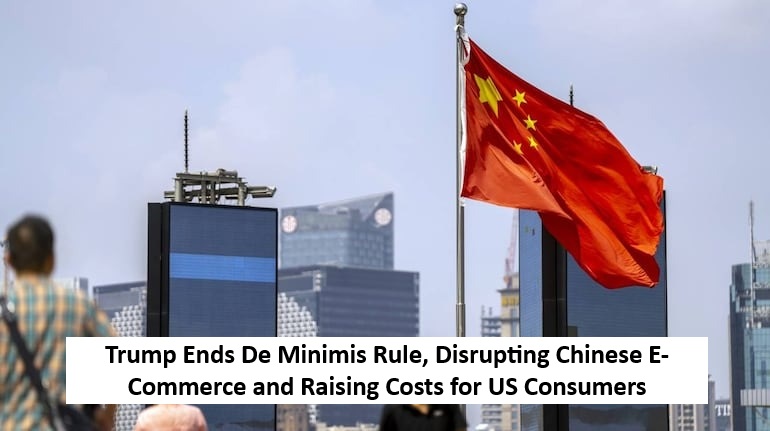
As part of his broader tariff strategy, US President Donald Trump has announced the end of the de minimis rule, a provision widely used by Chinese platforms like Shein and Temu to ship low-cost goods into the US without tariffs. The move is expected to radically reshape the e-commerce landscape, affecting both merchants and consumers.
What Is the De Minimis Rule?
Originally introduced in the 1930 Tariff Act, the de minimis rule allowed small international purchases to enter the US duty-free. In 2016, Congress raised the limit to $800 per recipient per day, significantly boosting the number of packages entering tariff-free.
This rule has been widely exploited by retailers and platforms like Shein, Temu, and even some Amazon sellers to avoid paying duties—especially under Trump’s earlier China tariffs.
Why the Rule Is Being Removed Now
The Trump administration has cited both national security and economic concerns:
Massive Growth in Duty-Free Imports: From $5.3 billion in 2018 to $66 billion in 2023.
Drug Enforcement Concerns: Officials argue that the high volume of small packages overwhelms customs agents, limiting their ability to detect fentanyl and other illegal drugs.
Unfair Advantage to Chinese Retailers: US brick-and-mortar stores have long criticized the loophole for creating unequal competition.
When and How Will It Be Enforced?
Starting May 2 at 12:01 a.m. ET, all shipments from China and Hong Kong—even those under $800—will be subject to:
30% tariffs, or
$25 per item, whichever is greater.
These items will undergo full customs processing, similar to higher-value imports. The enforcement specifically targets packages sent through international mail systems.
Impact on Chinese E-Commerce Giants
Platforms like Shein and Temu, which account for around 17% of US discount e-commerce, rely heavily on this loophole. Though both companies are moving toward domestic warehousing and partnerships with US sellers, the sudden loss of duty-free entry is expected to slow their momentum.
US-Based Retailers Could Benefit
Retailers like Amazon and Walmart, who fulfill orders from US warehouses, may gain a competitive edge. Experts predict these companies will be less affected by the new tariffs, offering them a relative advantage.
Small Businesses and Consumers to Feel the Pinch
Small and mid-size e-commerce sellers, including many operating on Shopify, often depend on de minimis to maintain low shipping costs. Some even ship directly to Amazon fulfillment centers in the US to avoid duties. This shift may force them to restructure supply chains, invest in bulk imports, or face higher costs.
For consumers, the elimination of the loophole means higher prices. A $15 Shein dress, for instance, could now cost $17 or more. Analysts estimate the change could cost US buyers $11–$13 billion annually, with lower-income households most affected.
A New Era for Cross-Border E-Commerce
With this move, the Trump administration is intensifying its push to reshore manufacturing and create a level playing field in trade with China. However, the removal of the de minimis exemption marks a major shift in how low-cost goods enter the US—altering the dynamics of global retail supply chains overnight.
Read More: World Bank Approves 700 Million Dollars for Pakistan to Boost Economic Stability and Public Services

 Share
Share



